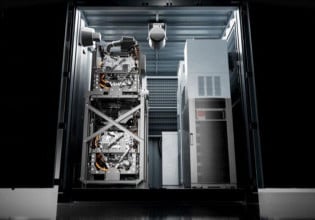Doubts about electrolytic capacitors
- Thread starter cloud ff7
- Start date
Scroll to continue with content
In days of olde  there was an issue occasionally with electrolytics which were said to have "dried out" but that was valve era electronics and maybe a decade or two into the solid state era. Caps from the 90s as far as I am aware should be fine if they were reasonable quality in the first place. And therein could be a clue to the reason you asked this question: there was an issue at around that time (90s) where very low quality copies of better brand caps were in common use and they had a tendency to fail prematurely and sometimes spectacularly. The only examples of that I have found are large value bulk caps in SMPS and if the failure is not immediately obvious, check the top of the caps for bulging. Once the caps got to the bulging stage their capacitance was a small fraction of the stated value which usually causes the SMPS to fail to start and run. Replace the caps with what they should be (voltage, value, ripple current rating and maybe ESR) and the SMPS typically comes to life with no other ill effects.
there was an issue occasionally with electrolytics which were said to have "dried out" but that was valve era electronics and maybe a decade or two into the solid state era. Caps from the 90s as far as I am aware should be fine if they were reasonable quality in the first place. And therein could be a clue to the reason you asked this question: there was an issue at around that time (90s) where very low quality copies of better brand caps were in common use and they had a tendency to fail prematurely and sometimes spectacularly. The only examples of that I have found are large value bulk caps in SMPS and if the failure is not immediately obvious, check the top of the caps for bulging. Once the caps got to the bulging stage their capacitance was a small fraction of the stated value which usually causes the SMPS to fail to start and run. Replace the caps with what they should be (voltage, value, ripple current rating and maybe ESR) and the SMPS typically comes to life with no other ill effects.
Hope that helps.
S.
Hope that helps.
S.
So I did not guess the reason for your question correctly. The reason I was trying to guess is simply because your question cannot be answered without a lot more information being provided. Details such as the manufacturer, part number and part specifications, stresses when in use, total hours of use, operating environment when in use and storage conditions when not in use; temperature, humidity and air pressure, climatic cycles and extremes, mechanical stresses and even the method of mounting and other production processes used in construction of the product will have an impact on the number you want to know.
Look through a catalogue / data sheet from a manufacturer like Nippon Chemicon, Rubycon or Panasonic etc and look for their tests and test methods and you might see what I am talking about.
All I can tell you is that question might be considered in some specific and unusual circumstances and other than that nobody ever worries about what happens to the electrolytic caps if they don't use the product. Why would they? Why do you want to know?
Look through a catalogue / data sheet from a manufacturer like Nippon Chemicon, Rubycon or Panasonic etc and look for their tests and test methods and you might see what I am talking about.
All I can tell you is that question might be considered in some specific and unusual circumstances and other than that nobody ever worries about what happens to the electrolytic caps if they don't use the product. Why would they? Why do you want to know?
the temperature in my house varies from 31-34ºC, humidity without rain varies from 55-70%, there are many manufacturers of electrolytic capacitors because I have many devices such as Snes jr and FAT video games, PS2 Slim 90000, CRT TVs and other devices are all stored but my friend said that if i don't use these electronic devices every month the electrolytic capacitors will depolarize, lose capacitance and fail due to disuse?
Your friend just wants an excuse to play games and watch TV all the time. Do a quick survey asking people if they make a point of using all of their electronic devices at least once a month to keep them working and if they find the devices fail after long periods of disuse otherwise. That may embarrass your friend but it might also convince them to stop circulating urban myths and misinformation.




